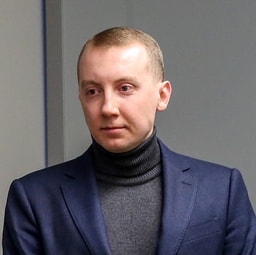Opinion: In remembrance of a great mind who survived Russian captivity

Ihor Kozlovskyi (1954-2023) was a renowned Ukrainian writer, scholar, and theologian from Donetsk Oblast. He was captured by Russian proxies in occupied Donetsk in 2016 for his pro-Ukrainian views and subsequently subjected to torture for nearly two years in Russian captivity. He was released in December 2017.
One of Ukraine's most prominent religious scholars, Kozlovskyi authored works of poetry and prose, as well as over 50 academic books and over 200 articles across dictionaries, encyclopedias, and scientific periodicals on religious theory. Kozlovskyi's last book, "A Man at the Crossroads: Reflections on Existential Intelligence," delved into how understanding one's inner strength, rooted in love, can empower individuals to overcome even the most challenging obstacles. He drew upon his time in Russian captivity to provide his own unique perspective.
Kozlovskyi passed away from a heart attack on Sept. 6 at the age of 69.
Ukrainian writer and journalist Stanislav Aseyev, who was Kozlovskyi's student and a prisoner in the infamous Izolatsiia from 2017 to 2019, wrote the following piece to commemorate the memory of his beloved colleague. Aseyev’s book, “The Torture Camp on Paradise Street,” which was published in English translation by Harvard’s Ukrainian Research Institute in 2023, recounts the horrors that prisoners of Izolatsiia, many of them civilians, had to endure.

Language immerses us in existence. The words "I remember" often sound not like the past, but like eternity...
I remember, too.
I remember, in our first year of university, the priest who led one of our classes asked everyone to write down a question for him. After collecting the papers from the tables, he suddenly read from one of them: "The Phenomenon of Ihor Kozlovskyi."
Laughter erupted in the classroom, to which the holy father responded: "Well, I suppose you will understand it yourselves with time."
"Well, I suppose you will understand it yourselves over time."
They didn't understand... But can one truly understand a person who reads haiku in a lecture on Buddhism instead of the history of one of the world's religions?
Twilight over the sea
And only the voice of a duck
Like a dim glimmer
"That's all you need to know about Zen. Study the rest of the nonsense for the exam in your textbooks."
And he continued to read the poems.
Ten years later, Ihor Anatoliiovych would be composing a haiku in the basement after having been severely tortured. Why? Because he lived as he taught.

The Phenomenon of Ihor Kozlovskyi
No encounter with him was linear: an exam could be accompanied by a tea ceremony or a game of chess with glass pieces of the same color, which stimulated the players' brains many times more.
My own exam on Islam started and ended with a single question on the period of the Abbasid dynasty. I responded that I had forgotten the exact dates but could tell him a lot about Islam itself. I spent an hour and a half in his office until I finally remembered. There were no more questions and I received an "excellent."
He knew the Bhagavad Gita by heart and, for a lecture on Karma Yoga, he brought in a photo of a stranger and walked with it among the students – until he suddenly tore it up in front of the girls' faces, eliciting mere groans.
"Now you understand what Karma Yoga says about attachment to things? A stranger's photo almost caused you to have a heart attack. And this is just a picture that you got attached to in a couple of minutes."
Cooking, the history of piracy, martial arts – these are just a mere few in the list of things that Ihor Kozlovskyi taught beyond academic reading.
He traveled halfway across the world, participated in the religious rituals of the peoples of Africa, Native Americans, and the indigenous peoples of Australia...
He was acquainted with Pope John Paul II and Bartholomew I of Constantinople, and he held many titles and awards, of which he particularly cherished a Buddhist rosary once gifted to him in a train by one of India's spiritual leaders.
By the way, speaking of the Pope...
When I was brought in for interrogation at the so-called "Ministry of State Security" in occupied Donetsk, and I asked the "lawyer" if there were any chances of a quick release, he proudly replied:
"We even have someone here with a commendation from the Pope himself – and he has been sitting here for a year!" The "lawyer" did not even realize who he was talking about and to whom.
However, Ihor Anatoliiovych's arrest for having allegedly kept "grenades among his books" was a a direct consequence not only of his pro-Ukrainian stance during the occupation, but also of the magnitude of his personality.
People whose names will only be preserved in the annals of war crimes asserted their dominance by keeping Kozlovskyi in death row cells among rats.
But they didn't know that, even there, he would continue to give lectures... to those rats. He did it to preserve within himself the essence of humanity – a humanity that his tormentors would never find within themselves.
Editor's Note: This op-ed was originally published by Radio Free Europe/Radio Liberty. It was translated from Ukrainian and republished by the Kyiv Independent with permission. The opinions expressed in the op-ed section are those of the authors and do not purport to reflect the views of the Kyiv Independent.











